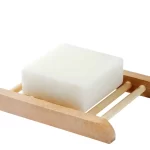
Both sodium bicarbonate (baking soda) and sodium carbonate (washing soda/soda ash) may be used in laundry detergents, but they differ significantly in their role positioning, addition logic, and core functions. The choice between them depends on the detergent’s intended purpose (e.g., “powerful oil-stain removal” or “gentle fabric care”) and essentially leverages their “alkalinity difference” to achieve complementary effects. Below is a detailed breakdown based on detergent types:
Due to its strong alkalinity (pH ≈ 11.6), high temperature resistance, and ability to bind with hard water ions, sodium carbonate is a “standard component” in regular or heavy-duty oil-stain detergents. It serves as the “primary auxiliary stain-removing component” with three key functions:
-
Optimizing the stain-removing environment for surfactants
The core cleaning ingredient in laundry detergents is “surfactants” (e.g., sodium dodecylbenzenesulfonate). Surfactants work most effectively in a weakly alkaline environment (pH 9–11). Sodium carbonate quickly adjusts the pH of the washing water to create “optimal working conditions” for surfactants. Especially for acidic stains like oil and sebum, its strong alkalinity accelerates oil decomposition (converting oil into water-soluble “soap compounds”), enhancing oil-stain removal efficiency—ideal for cleaning heavily soiled items like range hood filters or kitchen rags.
-
Softening hard water to prevent soap scum residue
Calcium and magnesium ions in tap water (hard water) combine with surfactants to form “soap scum” (white residues on washed clothes) and reduce cleaning power. Sodium carbonate binds with calcium and magnesium ions (forming calcium carbonate and magnesium carbonate precipitates), “softening” the water. This not only prevents soap scum adhesion but also stops dirt from reattaching to clothes (anti-redeposition), making it particularly suitable for areas with hard water.
-
Breaking down stubborn stains
For stubborn stains containing proteins or organic acids (e.g., sweat stains, food residues), the strong alkalinity of sodium carbonate slightly disrupts the stain structure, making it easier for surfactants to encapsulate and rinse away the stains—such as cleaning old yellow stains on collars and cuffs.
Thanks to its weak alkalinity (pH ≈ 8.3), low irritation, and odor-absorbing properties, sodium bicarbonate is mostly used in gentle detergents (e.g., baby clothing-specific, sensitive skin-friendly, or delicate fabric detergents). Its role is “supplementary assistance” rather than “primary stain removal”:
-
Buffering alkalinity to reduce irritation
If a detergent contains a high amount of sodium carbonate, its strong alkalinity may damage delicate fabrics like wool or silk, or cause dry, red skin during hand washing. Sodium bicarbonate acts as an “alkaline buffer,” neutralizing some strong alkalinity to maintain the washing water’s pH at a mild range of 8–9. This preserves basic stain-removing power while reducing irritation to clothes and skin.
-
Assisting stain removal + odor absorption
When sodium bicarbonate comes into contact with acidic stains (e.g., lactic acid in sweat, acetic acid in food residues), it slightly decomposes to release carbon dioxide bubbles. These bubbles loosen stain particles, assisting surfactants in stain removal. Additionally, sodium bicarbonate itself absorbs odors, eliminating sweat or mildew smells from clothes and leaving them fresher—ideal for washing sportswear or undergarments.
-
Preventing detergent caking
Sodium bicarbonate has fine particles. When added to powdered detergents, it improves powder flowability, reducing caking caused by moisture and making the detergent easier to use.
Detergents with different positioning have clear preferences for ingredients, which can be quickly matched based on “usage needs”:
To confirm which ingredient a specific detergent contains, simply check the ingredient list on its packaging: “sodium carbonate” indicates the presence of washing soda, while “sodium bicarbonate” indicates baking soda. Some formulas include both to balance “powerful stain removal” and “gentle fabric care.”
Choosing Hebei Guangsheng Technology Co.,ltd‘s laundry detergent means choosing a new, efficient and long lasting fragrance laundry method. We have different formulas laundry detergent for choose. We are committed to providing consumers with high-quality laundry products, solving laundry problems with innovative technology, and enhancing the quality of life with excellent service. Welcome to make a purchase and start an easy laundry journey!
 Hebei Guangsheng Technology Co.Ltd
Hebei Guangsheng Technology Co.Ltd
 Hebei Guangsheng Technology Co.Ltd
Hebei Guangsheng Technology Co.Ltd







